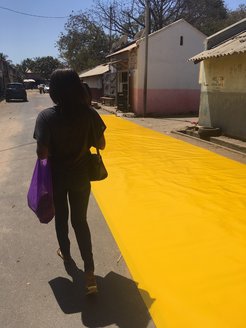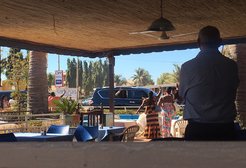Current Project - Agathe Menetrier
Profile | CV | Publications
From Goor-Jigen to LGBTI refugees : young queer Gambians work their way up the international asylum system in Dakar, Senegal

Why do some displaced persons manage to access aid organizations while others don’t? In exile, how does one acquire the necessary knowledge of the asylum system in order to be officially recognized as a refugee and, potentially, as a beneficiary of aid? To ask these questions in France, in Canada, or in Senegal would involve describing somewhat different procedures. Invariably, however, these procedures are maintained by a vast network of actors: UN agencies, host state, and local NGOs. Together, these actors form the asylum system and set out the legal, moral and practical framework of reference to define who among those seeking protection deserve refugee status. Because the histories, budgets, and interests of these actors vary greatly, their legal, moral and practical approaches do not always coincide.
I am interested in the impact of plural and often contradictory classification practices on asylum seekers’ experience of exile. My research contributes to inter-disciplinary efforts to question humanitarian practices and follow circulations and translations of causes.

I conducted fieldwork in Dakar, Nouakchott and Banjul. From 2017 to 2018 I conducted ethnographic research on the international asylum system as seen through the eyes of a group of young Gambian men and women who had come to Dakar to seek asylum following persecution related to their homosexuality in the Gambia. Once in Dakar, they strived to qualify as LGBT refugees, hoping to eventually be resettled to the global North. I followed their trajectories between the different refugee aid organizations, witnessed how their mobilizations as a group evolved, and explored their conceptualizations and use of the "LGBT refugee" category.

